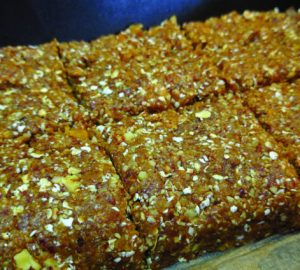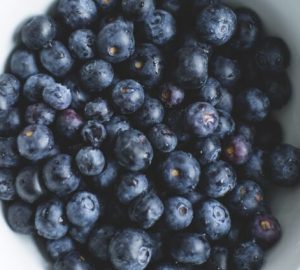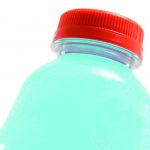Fuel your swim
What you eat and when has a huge impact on your performance in the water. Here sports nutritionist Kathy Findlay gives you the low down on when, what and how much fuel you need for your swims so you can dedicate your time to perfecting your stroke and training for a summer of events and challenges.
Before your swim
Ideally you should aim to eat two to four hours before your planned swim session. This gives your stomach time to digest the food, leaving you feeling comfortable and not too full, and is soon enough to give you the benefit of the energy provided in that meal without starting your swim session feeling hungry.
Eating before your swim helps increase liver and muscle glycogen levels, enhancing subsequent performance. I wouldn’t advise a fasted swim session or prolonged wait between eating and swimming as this just leaves you at risk of hypoglycaemia, which will almost certainly hinder performance and long term progression. With low blood sugar you will tire earlier, increase the chances of injury due to a clumsier technique and you risk your safety, especially in open water swimming. On the other hand, swimming with steady blood glucose levels will allow you to swim for longer at higher intensity.
Researchers at Loughborough University found that endurance was increased by 9% in athletes who consumed a well-timed pre-training meal compared with those who didn’t eat at all.
As a rule, the closer you are to the time of your swim, then the smaller the meal you should consume. An ideal scenario would see you munching on a low fat meal containing 2.5g of low G.I. carbohydrates per kg of your bodyweight about three hours before you swim. For example, a woman weighing 65kg would benefit from a meal of 162g low G.I. carbohydrates. Low G.I. carbohydrates provide a sustained source of carbohydrate throughout exercise and recovery.
During your swim
For swims lasting no longer than one hour any kind of fuelling is unnecessary and only water is required to satisfy thirst.
For endurance swims lasting over 90 minutes, consuming carbohydrates can enhance performance and ensure that you finish strong and recover well. During your first hour of swimming, most of your carbohydrate energy comes from muscle glycogen. After that the muscle glycogen depletes and so your exercising muscles must use carbohydrate from another source. This is where blood glucose comes in. In order to combat that ‘hitting the wall’ feeling of depletion, it’s important to take on carbohydrates for energy, helping to maintain blood sugar levels and allowing you to swim for longer.
Depending on intensity I would recommend taking on board between 40g and 60g of high G.I. carbohydrates per hour that you plan to swim for. To ensure you’re not playing ‘catch up’ be sure to begin your fuelling schedule 30 minutes after your swim session begins.
It is important also to always drink at least 400ml of water per hour alongside your fuelling snacks.
Check with the event organisers to see what they’ll be providing at feed stations and train using these items. A good organiser will provide a mixture of sports products and real whole foods, such as soft bananas, raisins and isotonic drinks, all excellent carbohydrate snacks for fuelling. If you plan your fuelling well then there is no need to rely on emergency foods such as sweets or caffeine, both of which are a risky choice under strenuous exercise conditions unless you’re already accustomed to them.
Pre-swim meal ideas
- Porridge
- Wholegrain cereal (not sugary) with milk
- Sweet Jacket Potato with beans
- Wholemeal Pasta with a tomato based sauce and side salad
What if your daily schedule doesn’t allow for this kind of scoffing or you only have one to two hours before an early morning swim?
Set your alarm clock to get up earlier to ensure you can consume a carbohydrate meal at least one hour before your planned swim.
Choose low fat, moderate to high carbohydrate foods a minimum of 1g carbs per 1kg of your body weight. For example, that same 65kg woman would consume a pre swim meal of 65g moderate to high carbohydrates.
Choose softer foods that are easier to digest, so as not to strain your digestive system.
Account for the extra carbohydrates needed earlier on during your swim fuelling during endurance sessions.
Choose:
- Fresh fruit
- Whole fruit smoothies
- Dried fruit
- Cereal or energy bars








